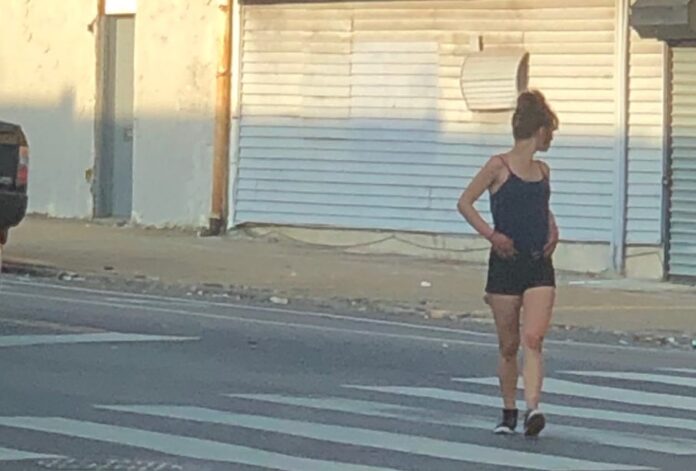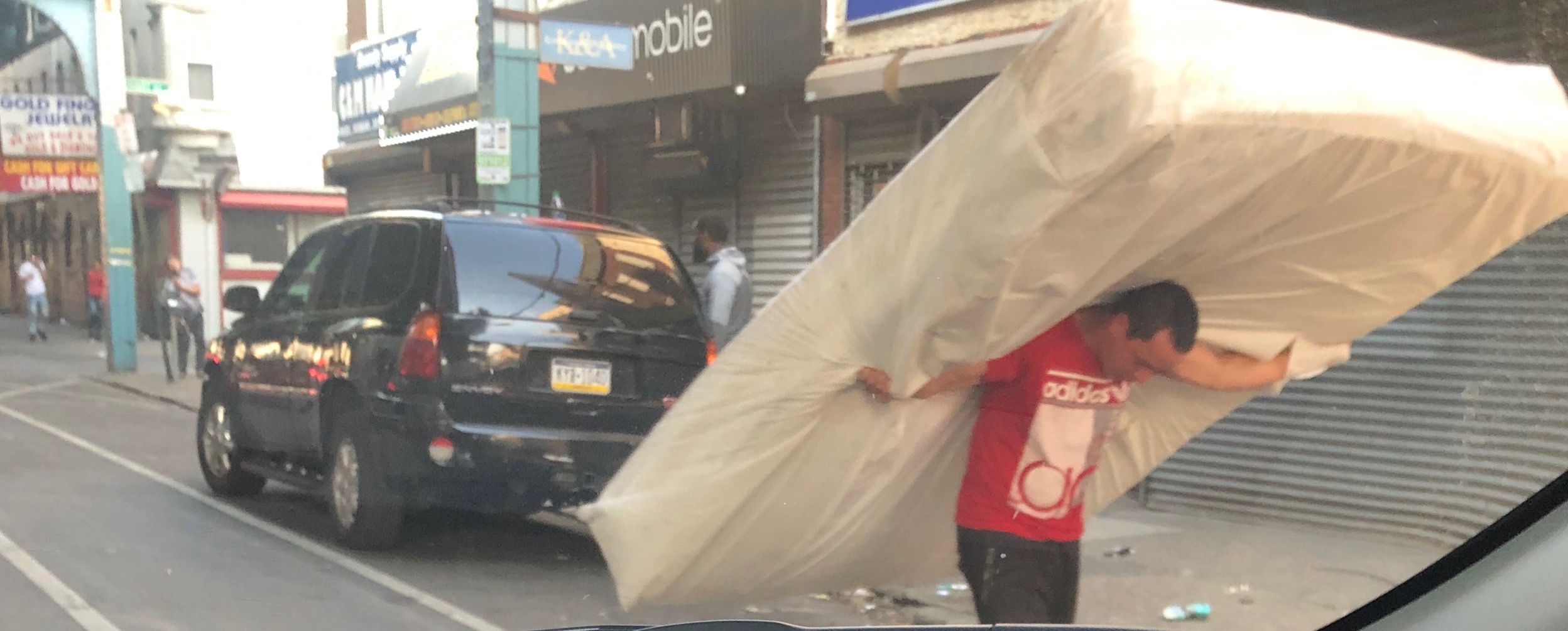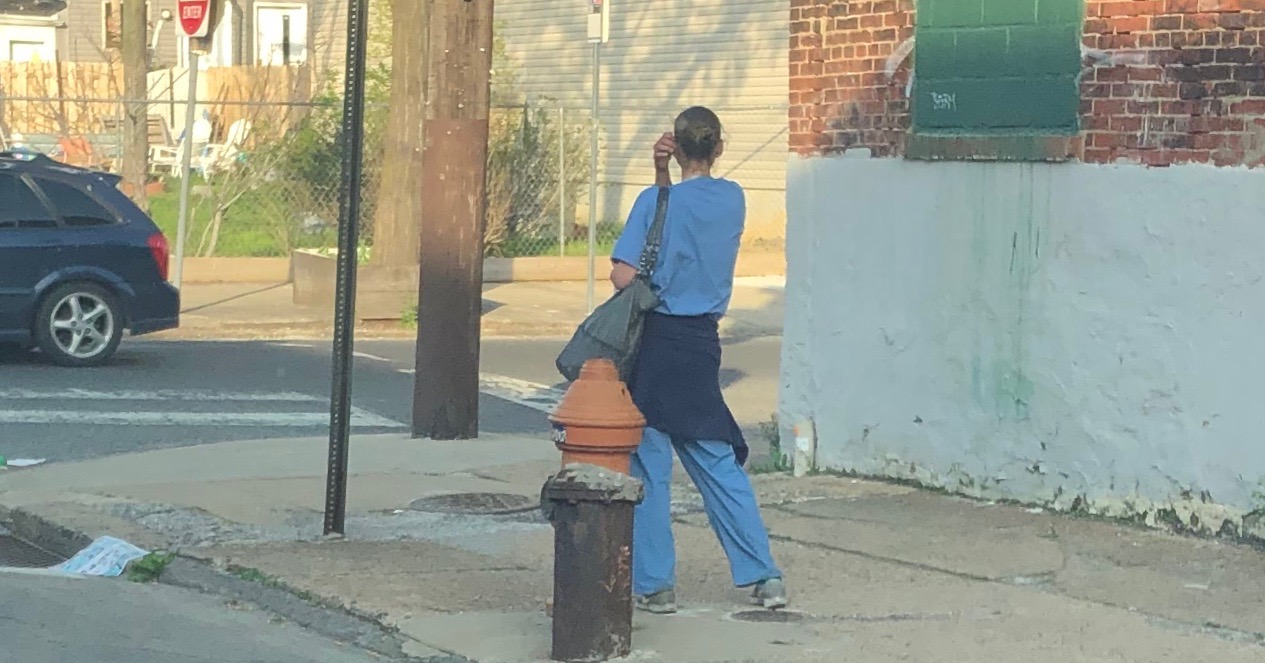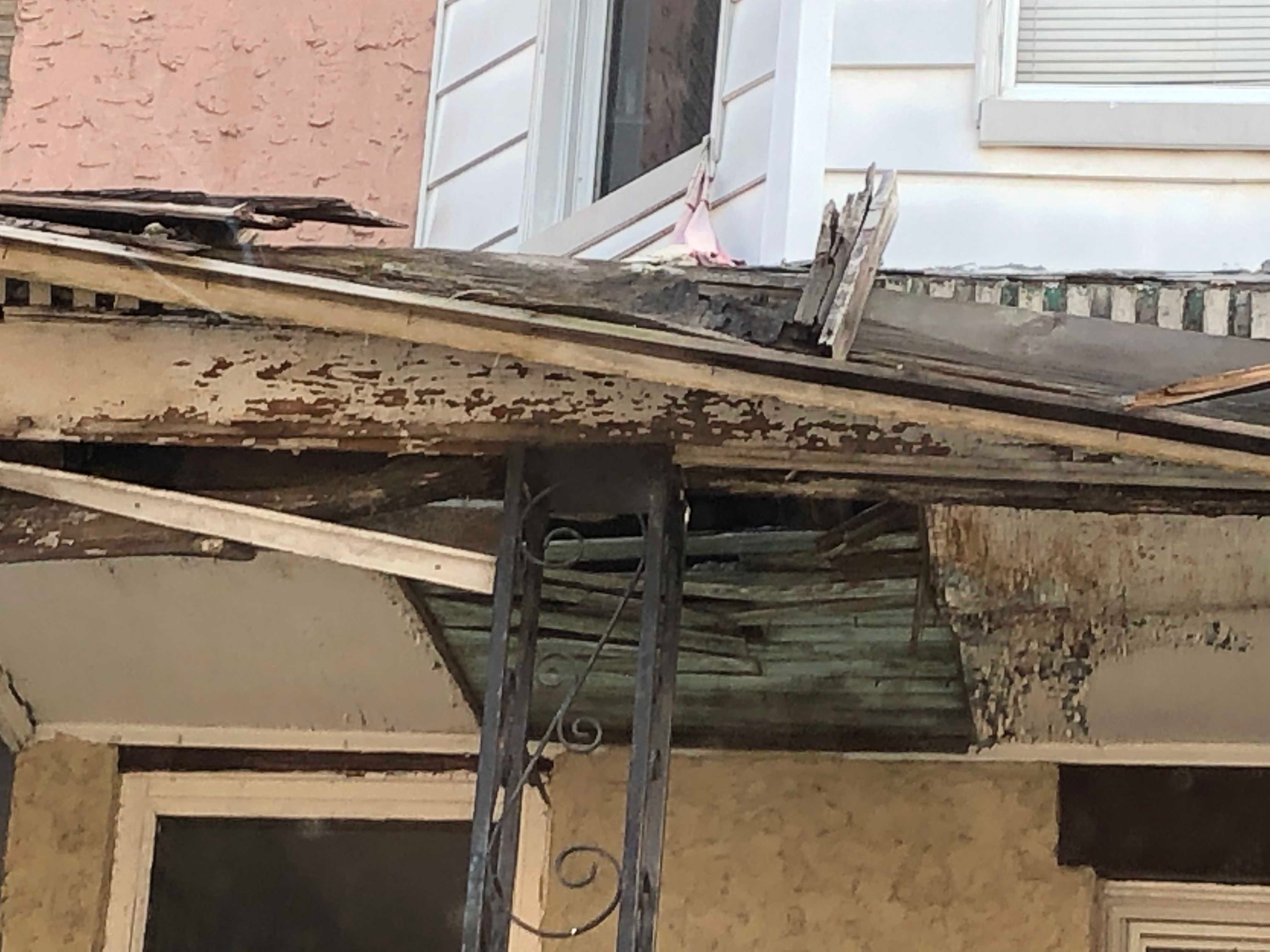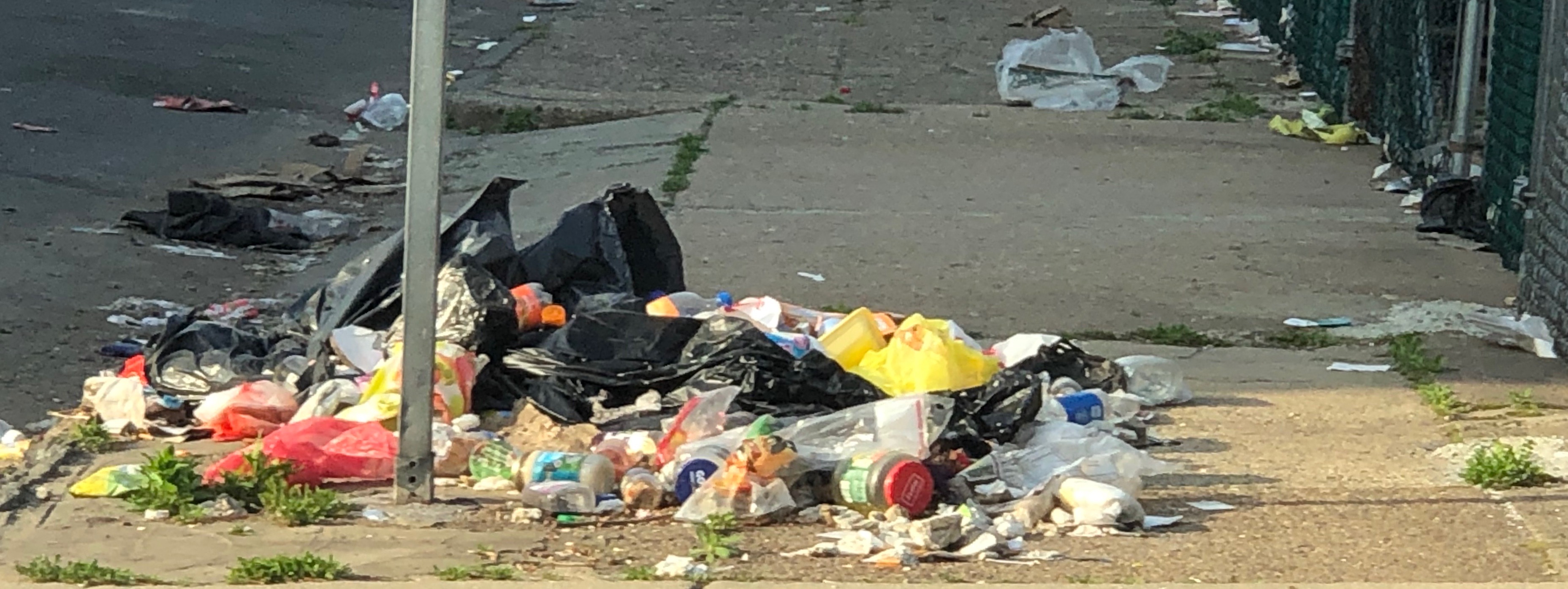Philadelphia: While doing hair in Kensington, Frank Rodriguez observed two individuals who seemed out of place.

The area around Philadelphia was well-known to him. After all, he spent years there selling narcotics before developing an addiction of his own. The native of Brooklyn took in his surroundings and attempted to perceive things from the pair’s perspective.
According to Rodriguez, they witness one man shooting another man in the neck a few feet before them. They notice a different woman using the restroom on the park stairs.
Watch as a recovering addict discusses the horrors of an open-air drug market.
“They observe another man dozing off while lying face down and with his pants down. They witness someone actually lying in the gutter, openly smoking crack and firing up “He went on. “You can see all the sores because it was July at the time. You can actually see holes in people’s arms and legs.”
It turns out that the couple was from Lebanon, Pennsylvania, a little town near Kensington, located around two hours away. They had never heard of the area known for its open-air drug markets and violent drug-related crimes.
One addict referred to the area as a “warzone.” Someone else described it as “hell. Hell, literally.” Rodriguez claimed that the Lebanon couple had gone there to look for their kid. “I feel pain,” When looking at Kensington, it’s easy to get engulfed in sadness and a sense of hopelessness. According to Rodriguez, “It’s simply anarchy.” It’s so outside the bounds of what we consider to be a regular life. I believe you see humanity at its most pitiful, he remarked.
The streets are lined with trash, clothing, and other debris, with many needles. People will be draped across the walkway, swaying, slowly tumbling forward, or already passing out in a quick pan. Rodriguez said: “You see individuals with blood pouring down their neck all the time.” “Looks like a vampire bit them,”
“I can see the drug abuse. I observe the drug trafficking, you know. Violence is evident. I note the destitution “said he. I primarily notice pain.
According to a Drexel University study from 2019, Kensington’s average income from 2012 to 2016 was just about $12,670, nearly half of the average pay in Philadelphia. While the overall city crime rate was around 30% lower, the violent crime rate was about 30% higher.
Rodriguez frequently stopped driving around Kensington with Fox News to check on folks dispersed across the pavement. Whistling at them, he would instruct them to stand up.
Rodriguez said to one of the men, “Yo.” To gain his attention, he whistled. “You okay, man? You’ve got to stand up, brother.”
Still holding an uncapped needle in his dirt-covered hands, the man was half-lying on a cane. Under his beanie, he had another syringe with the plunger pointed downward. When he finally opened his eyes, he appeared to take some time to process what was being stated, stopping before turning to where Rodriguez indicated.
A reusable shopping bag containing clothes and what seemed to be rubber ties was placed next to him. Rolling up his pant legs revealed scabs, and the bottom of a piece of paper partially adhered to his skin had dried blood on it.
The other shoe was next to his head while the other was on. Half of his sock was missing.
Rodriguez lamented that addicts are typically dismissed as inconsequential facets of Kensington’s landscape. Since 2016, Rodriguez has made follow-up visits to the northeast Philadelphia community to offer free haircuts as part of his effort to humanize people.
Additionally, he documents the testimonies of addicts and uploads them to his “Morals Over Money” YouTube channel. Rodriguez wants to raise awareness that the addicts in Kensington are real people who are going through pain.
Rodriguez, 42, was born to heroin addicts in Brooklyn and transitioned from selling narcotics to abusing them. Before his mother relocated him to Kensington when he was eight years old in the hopes of leading a better life, he lived in a neighborhood he characterized as an “open-air drug bazaar.”
However, the Philadelphia neighborhood could have been better. It brought back memories of my childhood area, he remarked. Also present was an outdoor drug market.
The neighborhood of Kensington, located just west of the New Jersey border, has a “needle park” section because of the numerous syringes that litter the ground there. The Mexican government included a video depicting community drug use in an anti-drug campaign.
Kensington doesn’t have data available particularly for it, but according to Philadelphia’s health department, there were approximately 1,300 unintentional overdose deaths in 2021, up 5% from the year before. Opioids, including heroin and fentanyl, were involved in more than 80% of cases.
When Rodriguez was 12 or 13, he began to sell marijuana. He initially wanted to earn additional money to help his mother with the expenses or buy school clothes. After hoarding a bag of the powder he had discovered in his mother’s pocket, he eventually resorted to peddling heroin. However, Rodriguez fell into addiction after his mother was murdered in a vehicle accident in 2004.
He struggled to fall asleep for several nights because he kept seeing his mother’s body on the coroner’s slab in his head. Rodriguez eventually received three medications from a family member who was a nurse to help him relax and go to sleep.
He admitted to Fox News, “That rapidly led to my taking Percocets.” “I snorted heroin after taking Percocets. I started with sniffing heroin and then shot heroin.”
Rodriguez continued to take drugs up until 2016. Toward the end, he experienced a brief period of sobriety, but he didn’t maintain his sobriety until after overdosing during a relapse.
He spent a month in rehab at that time. He took notes while seated in the front. Four years had passed since she last saw her son. When Rodriguez first heard his daughter’s heartbeat, he broke down in tears. Before entering the doctor’s office, the patient had taken a shot in his automobile.
Rodriguez added, “I understood there was a young baby that would be born into that world and was counting on me. And if she had arrived that day, I would have been a terrible father.
The following day, he left Kensington. Rodriguez said, Fox News, “I packed up my belongings and fled my flat. “I left all my furniture there and took my clothing.” “I said to myself, “I have to go.” I might not be able to leave the next time I want to if I don’t,” “said he. Before launching his barbershop, Against the Grain, in Milton, Pennsylvania, in 2013, he took on odd jobs and began cutting hair at people’s homes. Now, Rodriguez is working to humanize addicts through YouTube videos and haircuts. His particular perspective as a former drug user enables him to relate.
Rodriguez recalled a day when he was high and relaxing on a veranda with a cigarette. A mom grabbed her two kids and ran across the street after spotting him. Rodriguez stated, “I know she felt like she was trying to protect her kids, and it hurt.” “That constantly upset me and stuck in my head.”
After experiencing that, he was motivated to do more than just become clean; he also wanted to help others and demonstrate his love for them. Rodriguez told Fox News, “When I go to Kensington and give them a haircut, I’m not afraid to touch them. “I don’t care how filthy they are. I don’t care if they smell bad. No, I’m not concerned if they’re dozing off.”
I know that was me once; therefore, I still see a human being under there, he added. Someone recorded a Facebook Live video of a man getting a haircut from Rodriguez one day. The man’s mother contacted him that evening. Rodriguez stated, “She hadn’t seen her son in four years.” She had no idea whether he was still alive or not.
More family members, just like that mother, he understood, were concerned about their children or other loved ones and unsure whether they were still alive. Rodriguez then started sharing testimonies from addicts on his YouTube channel.
Rodriguez considered his overdose as he drove about Kensington with Fox News. Just one sniff was all it took. Rodriguez recalled his awakening in the hospital three days later while driving. “That’s why I see people stretched out and sprawled out and people who have overdosed, and I just want to go there and be like, ‘Yo, you alright?'”
He snapped his fingers and declared, “That’s all it took for me to fully change my life, 180 degrees.” “Perhaps there are others who share that trait. And perhaps not, but…”
Rodriguez slowed down. He kept driving while seeing the streets, which were once the scene of so much suffering and were now populated by addicts, trash, and hopelessness.


